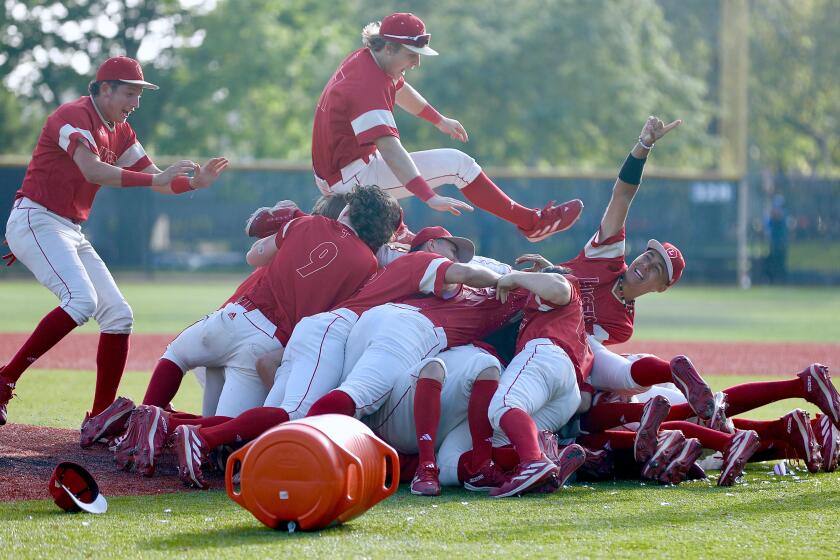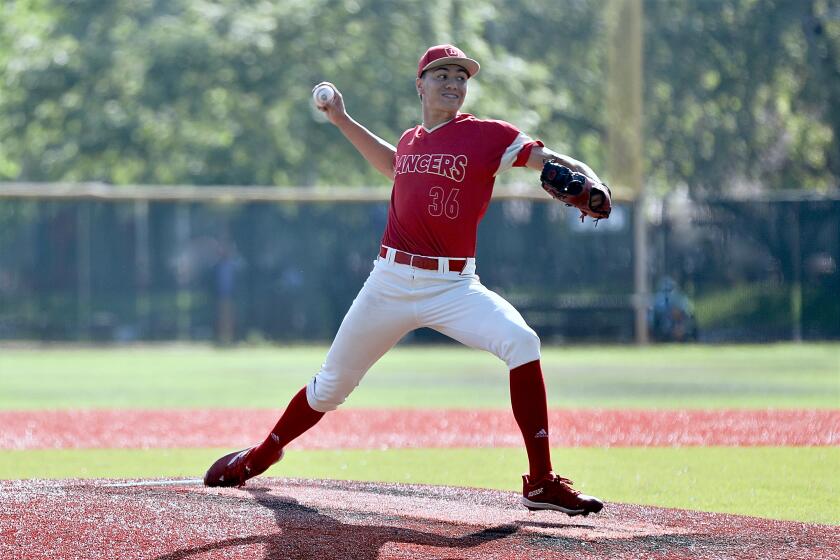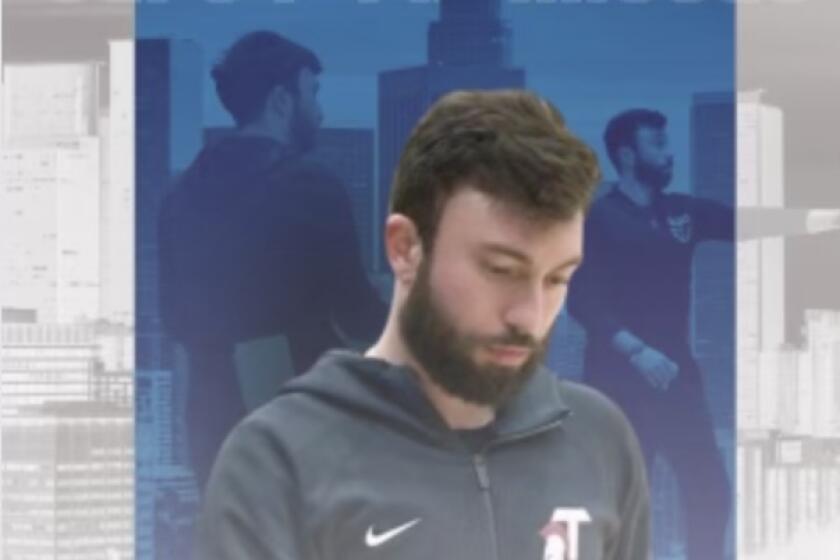For Coaches, Parents Are Boon and Bane
Dealing with parents is as much a part of coaching high school football as drawing Xs and O’s on a blackboard.
Every coach experiences a dose of parental outrage at some point in his career.
Take the case of Larry Toner, coach of Anaheim Servite. During his weekly booster meeting, his wife, Peggy, raised her hand with a question.
“She asked me point blank, ‘Why is my son not playing?’ ” Toner said.
Toner offered to tell her in private at home, but then informed her that “your son isn’t strong enough, isn’t coordinated enough.”
“That was 1990,” Toner said, “and she still hasn’t forgiven me. I ate like a monk for about a month.”
Toner is happy to speak with any parent who has a question or concern.
“If you have a complaint, come and see me,” he said. “Behind a closed door, call me any name you can find in the English language and I’m not insulted at all.”
Harry Welch, the coach at Canyon Country Canyon, once said that parents “were my strongest allies and worst enemies.”
When Canyon had a 46-game winning streak in the 1980s, Welch was the most popular teacher on campus. But he also was a hard-driving perfectionist who didn’t shy away from challenging his players. Conflicts with parents were inevitable.
In October 1993, a parent got into a physical altercation with Welch after a game. Welch resigned after the season.
“I did feel there was a situation so traumatic that it would be better for me to take a break,” he said.
He returned to coaching in 2001, a bit more cautious.
“I love what I’m doing, but it’s a tightrope coaches walk,” he said. “It’s precarious.”
Welch said when he started coaching at Encino Crespi in 1967, “the Carmelites actually would use belts and paddles, and almost every teacher had a paddle in their room.”
Now, a coach who physically grabs a player could face disciplinary action, if not dismissal.
At the college level, the Pacific 10 Conference has a policy that suggests schools provide a security escort for football coaches during games.
It hasn’t come to the point where high school coaches need police protection, but one local coach was threatened by a parent last season and received a security escort after a playoff game.
Most of the confrontations between coaches and parents are over playing time.
Bill Redell, coach at Westlake Village Oaks Christian, has a policy in which he won’t discuss issues with a parent immediately after a game because he believes everyone is too emotional.
“Parents are a little embarrassed the next day when they think what they said and how they acted,” he said. “That’s why we have a rule to meet 24 hours after a game. People think about it and calm down.”
Coaches understand that games are an emotional roller coaster.
San Pedro Coach Mike Walsh remembers a game against Wilmington Banning in which his team was losing, 21-7.
“There’s about six minutes left,” he said. “I heard a fan screaming from the stands, ‘You idiot, Walsh, don’t run that trap again.’ I turned around. I had graduated with that guy. We rallied and ended up winning. I turned around, ‘Way to go, Walsh.’
“I realized then the tide comes in, the tide goes out. My worst enemy turned into my best friend.”
Coaches need good players to succeed, but backing from parents is also critical because they provide a foundation for monetary and moral support. And coaches can’t get away with simply ignoring parents.
Richard Urias, athletic director at Westlake Village Westlake, said he expected his coaches to communicate and interact with parents.
“Some of these parents need pats on the back,” he said. “Some need to be stroked. Some need parameters because they’re aggressive. If a coach doesn’t want to deal with parents, they’re in the wrong business.”
Eric Sondheimer can be reached at eric.sondheimer@latimes.com.
Get our high school sports newsletter
Prep Rally is devoted to the SoCal high school sports experience, bringing you scores, stories and a behind-the-scenes look at what makes prep sports so popular.
You may occasionally receive promotional content from the Los Angeles Times.




